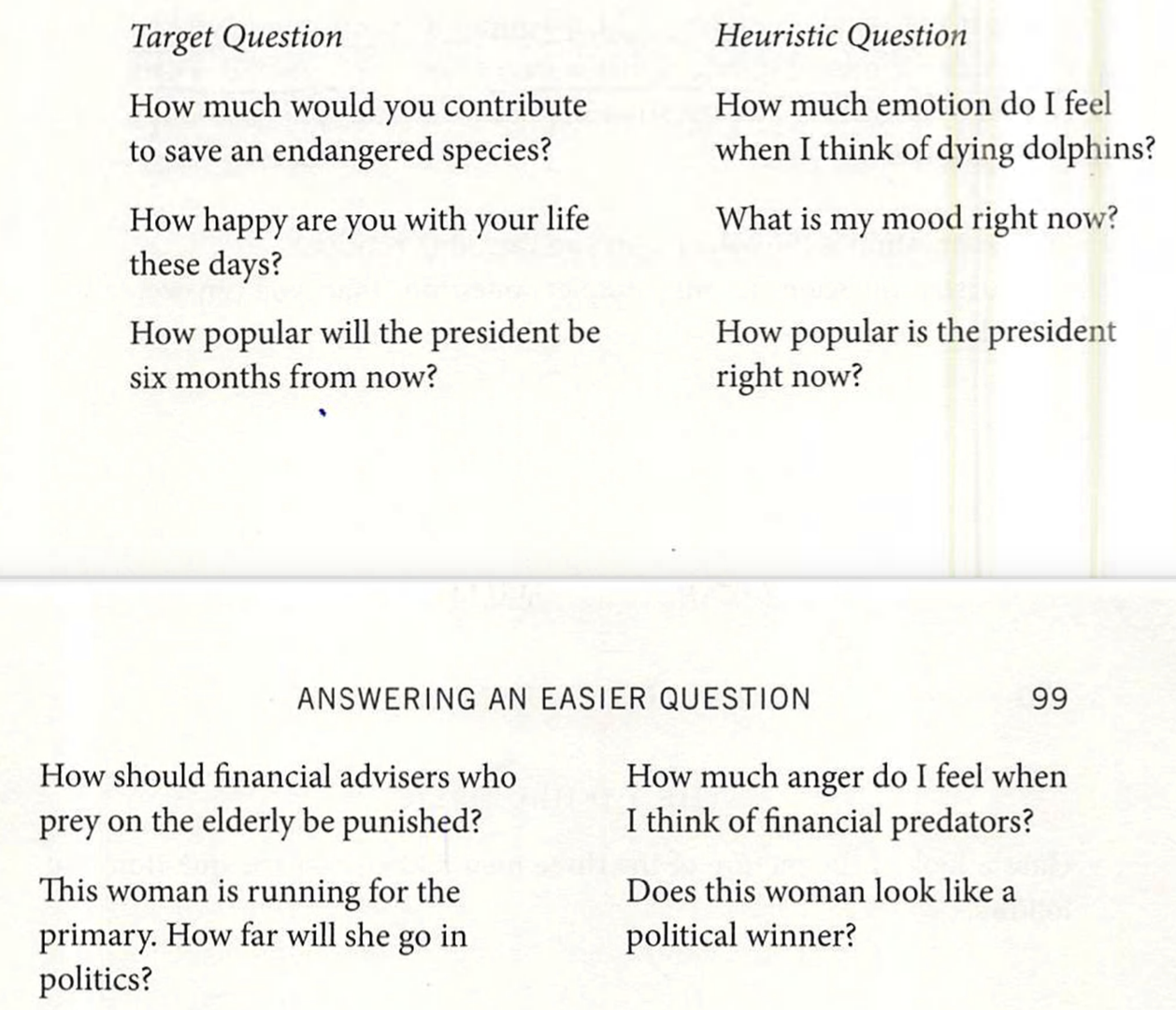Substitution as a Lazy Narrative-Preserving Technique (Using Gays Against Groomers as an Example)
What are the policy positions of Gays Against Groomers? Many people won’t know because corporate media on the left (I checked the NYT and WaPo) refuse to mention the organization. I recently asked someone who considers herself to be on the political left. She cringed and responded by saying that it sounds like a Republican or conservative group and that there is no grooming going on in America’s schools.
That seems like an answer to the question, but it isn’t. What just happened is subtle, but it is critically important. The person I was talking to completely failed to answer my question. Her answer illustrates Daniel Kahneman’s principle of “substitution,” which he discussed at length in Thinking, Fast and Slow (2011).
[W]hen faced with a difficult question, we often answer an easier one instead, usually without noticing the substitution.
(p. 12).
In my experience, this is a go-to technique in the culture war conversations. Quite often, when people are asked factual questions about a person or organization they don’t like (or they assume they don’t like), they will substitute an easy question for the more difficult question of detailing the facts. The substituted easy question will often be something like “Do you like this person/organization,” even though that was clearly not the question asked. As Kahneman describes, the new simple question will be unconsciously inserted. With the new simple question substituted in, the answer is also simple. In culture war discussions, it often takes the form of an ad hominem attack. Consider this example:
Q: “What are the policy position of [a particular person/group]?”
This is a factual question that should either be “I don’t know” or it should be a listing of the policy positions of the person/group. If the is about an organization and the answer is anything other than “I don’t know,” it should fairly track the “About Us” page of the website the person or organization.
However, the hard question is often unconsciously brushed to the side and a new easy question is inserted. In my example, if the person thinks they don’t like the person or organization, they could be expected to substitute in a new simple question like this:
“Do you like [the person or group] and what detrimental things can your emotionally generate (e.g., what deplorable person/affiliation/ad hominem label can you reflexively pull out) to express your emotions?”
For people politically on the Left, the answer will often be something like: “That [person/group] is like Hitler, Republicans, Satan, etc.
On this topic of Substitution, here is another excerpt from Kahneman book (p. 101):
The idea of substitution came up early in my work with Amos [Tversky], and it was the core of what became the heuristics and biases approach. We asked ourselves how people manage to make judgments of probability without knowing precisely what probability is. We concluded that people must somehow simplify that impossible task, and we set out to find how they do it. Our answer was that when called upon to judge probability, people actually judge something else and believe they have judged probability. System 1 often makes this move when faced with difficult target questions, if the an¬swer to a related and easier heuristic question comes readily to mind.Consider the questions listed in the left-hand column of Table 1.

These are difficult questions, and before you can produce a reasoned answer to any of them you must deal with other difficult issues. What is the meaning of happiness? What are the likely political developments in the next six months? What are the standard sentences for other financial crimes? How strong is the competition that the candidate faces? What other environmental or other causes should be considered? Dealing with these questions seriously is completely impractical. But you are not limited to perfectly reasoned answers to questions. There is a heuristic alternative to careful reasoning, which sometimes works fairly well and sometimes leads to serious errors.[More . . . ]

